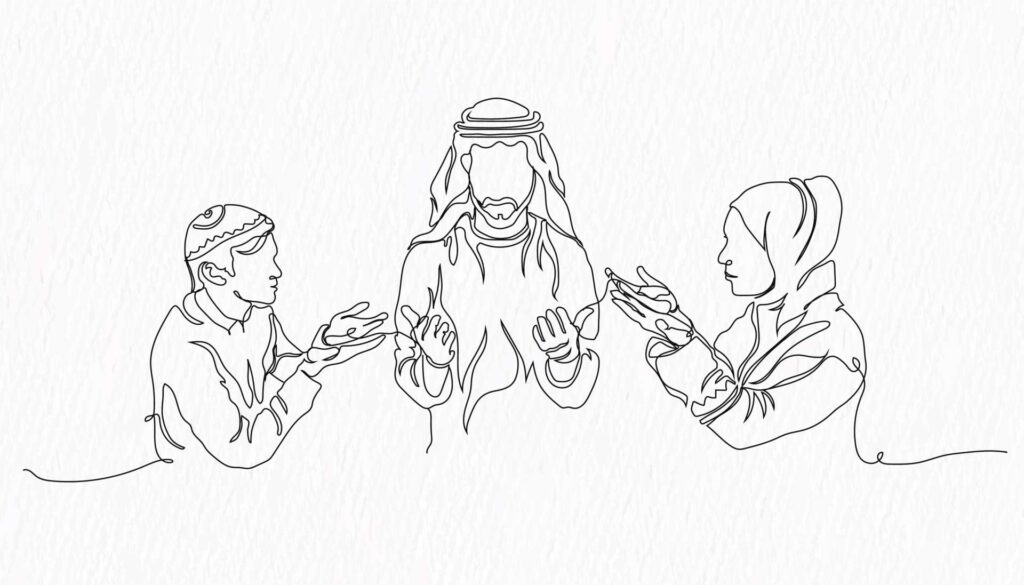Why Muslims Fast
Ramadan is a time of year that is highly anticipated by Muslims all around the world. For one month, they engage in fasting from dawn until dusk, abstaining from food, drink, and sexual relationship throughout the day. This may seem like a daunting practice to many, but for Muslims, it is an integral part of their faith and a way to purify their minds and souls. Ramadan is considered the holiest month in Islam offers unique spiritual opportunities for believers to grow closer to God while reflecting on their lives and seeking forgiveness for past sins. In this blog post, we will explore why Muslim fast during
Ramadan and delve into what makes this holy month so special for those who follow Islam.
The history of Ramadan fasting
The fasts of Ramadan were made Fardh in the month of Sha’ban. Before this, some scholars believed that the fasts of Ayyam-e-Beed and Ashura were obligatory and that the fasts of these days were
abrogated by the fasts of Ramadan. Fasting during Ramadan is one of the five fundamental pillars of Islam.
During Ramadan, Muslims abstain from eating, drinking, smoking, and having sex from dawn to dusk. Fasting is intended to teach Muslims about patience, humility, and spirituality. It also allows them to practice self-discipline, self-control, and sacrifice. There are exceptions for those who are ill or traveling, pregnant or breastfeeding women, and children below the age of puberty.
The holiday begins with a special prayer called Tarawih which is performed every night during Ramadan after Isha prayers. On the 27th night of Ramadan, it is believed that Allah revealed the entire Quran During this sacred month. This holiday is thus considered one of the most sacred in Islam. Eid al-Fitr marks the end of Ramadan.

What is Fasting?
Fasting is one of the five pillars of Islam and is observed by Muslims during the month of Ramadan. Fasting during Ramadan is a way for Muslims to cleanse their bodies and souls, and focus on their
relationship with Allah.
Ramadan is considered the holiest month because it is when the Quran was first revealed. During this month, Muslims believe that they are closer to Allah and can receive His blessing more easily. For this reason, many Muslims choose to fast during Ramadan in order to gain these
blessings.
The Purpose of Fasting
Ramadan is the holiest month in the Islamic calendar, and Muslims fast during this month to commemorate the first revelation of the Quran. Fasting is one of the Five Pillars of Islam, and it is obligatory for all able-bodied Muslims who are not pregnant, breastfeeding, sick, or traveling.
During Ramadan, Muslims abstain from food, drink, and sexual relationship from dawn to dusk. The fast is intended to be an act of self-discipline and spiritual growth. It is a time for reflection, prayer, and
charity.
The purpose of fasting is twofold: to develop God-consciousness and self-control. Fasting teaches Muslims to be patient and humble and to appreciate all that God has given them. When they feel hungry or thirsty during the day, they are reminded of those who are less fortunate and may be inspired to give charity. In this way, fasting helps Muslims become more compassionate and charitable people.
The Health Benefits of Fasting
When Muslims fast during the month of Ramadan, they are doing more than just abstaining from food and drink. They are also abstaining from negative thoughts and behaviors, and focusing on their relationship with Allah. This spiritual discipline can have a profound effect on their
health and wellbeing.
There are many health benefits associated with fasting, including improved cardiovascular health, weight loss, reduced inflammation, and increased mental clarity. Fasting has also been shown to boost
brain function and protect against age-related cognitive decline. So why is Ramadan considered the holiest month? Because it is a time when Muslims focus on their relationship with Allah and strive to
become better people. This spiritual journey can have a powerful impact on their physical and mental health, making them healthier and happier in their body, mind, and spirit.
The Spiritual Benefits of Fasting
Muslims believe that fasting is more than just abstaining from food and drink. Fasting is an opportunity to cleanse the soul, focus on God, and be thankful for His blessings. When done correctly, fasting can bring
about a sense of tranquility and peace. It can also help us to develop self-control and patience. One of the most important spiritual benefits of fasting is that it allows us to develop a greater understanding and appreciation for those who are less fortunate. When we go without food or water for even a short period of time, we realize how much we take these things for granted.
Fasting can also help us to overcome our selfish desires and learn to truly be grateful for everything we have been given. Another benefit of fasting is that it allows us to detach ourselves from the material world and focus on our spiritual development. This is especially important during Ramadan when Muslims are required to spend extra time in prayer and reflection. By disconnecting from the physical world, we are better able to connect with God on a deeper level.
Finally, fasting teaches us self-discipline and restraint. In a society that is constantly bombarded with temptation, it can be difficult to resist indulging in every desire. However, when we fast we are training ourselves to control our impulses and focus on what is truly important in life.
By understanding the spiritual benefits of fasting, Muslims are able to see beyond the temporary discomfort of going without food or water.
Conclusion
Ramadan is an important time for Muslims, as it serves a great religious significance. Through fasting and prayer, Muslims are reminded of their faith and piety while also striving to improve themselves spiritually. It’s a time of reflection and appreciation for the blessings bestowed upon us by Allah Almighty. By observing the fast during this holy month of Ramadan, Muslims demonstrate their dedication to Islamic teachings and show gratitude for all that they have been given in life.





One thought on “The Spiritual Significance of Ramadan”